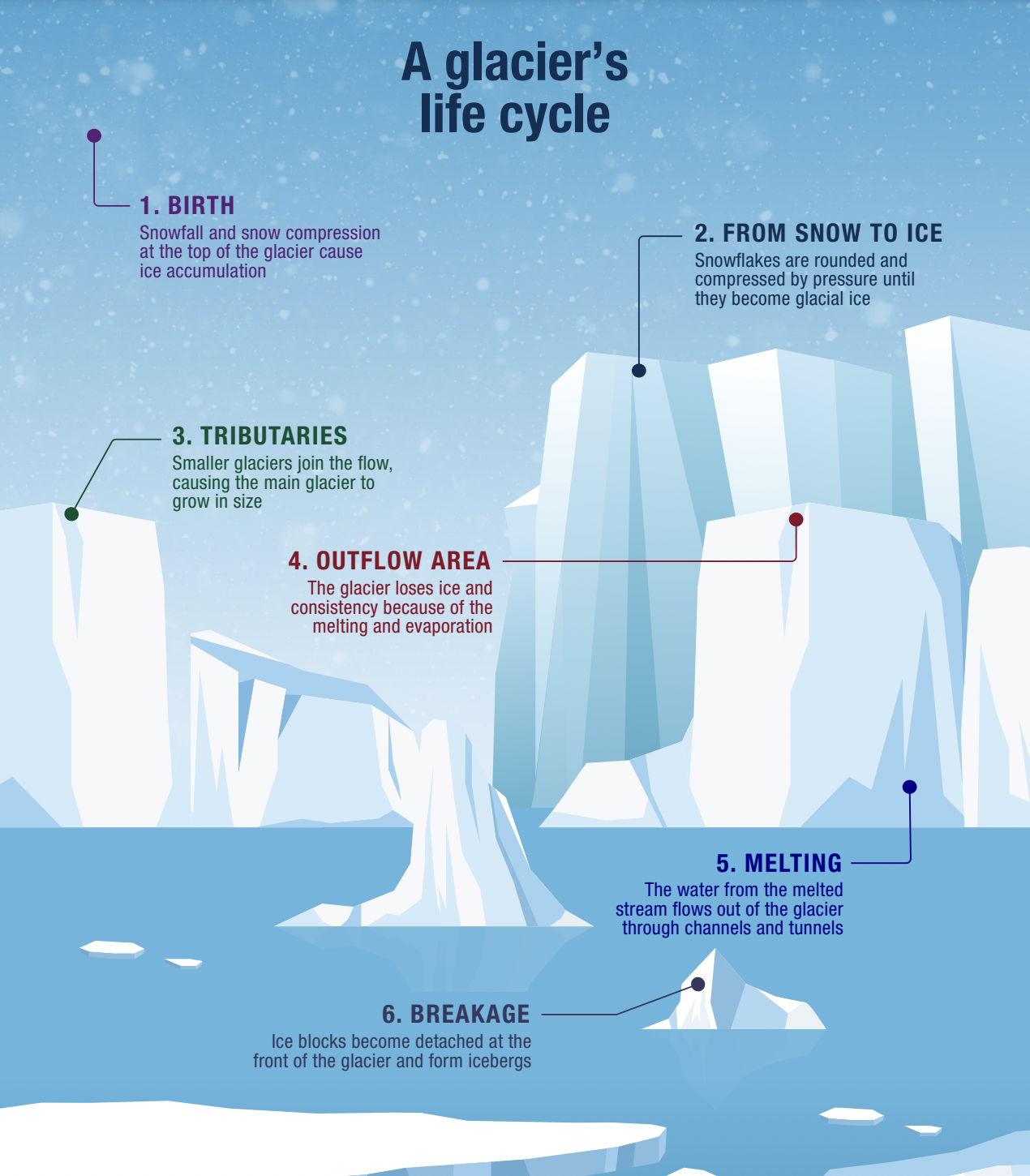Ahmedabad
(Head Office)Address : 506, 3rd EYE THREE (III), Opp. Induben Khakhrawala, Girish Cold Drink Cross Road, CG Road, Navrangpura, Ahmedabad, 380009.
Mobile : 8469231587 / 9586028957
Telephone : 079-40098991
E-mail: dics.upsc@gmail.com

Risk of Glacier melting
News: Here we discuss, the findings of the World Meteorological Organization’s report titled “The Global Climate 2011-2020: A Decade of Accelerating Climate Change.” It mainly focusses on the state of glacier health.
Key Highlights:
• The significant thinning of the world’s glaciers, averaging about a meter per year from 2011 to 2020.
• The volume of glaciers is forecast to decline anywhere from 55% to 75% by the end of the century.
• Greenland and Antarctica lost 38% more ice from 2011 to 2020 compared to the 2001-2010 period.
• During the summer melt season, Arctic Sea ice decreased, reaching a mean minimum extent 30% lower than the 1981-2010 average.
• The rapid glacier melting will lead to their disappearance. For instance, glaciers on the Rwenzori Mountains and Mount Kenya in Africa are projected to vanish by 2030, and those on Kilimanjaro by 2040.
What are the risks of glaciers melting?
• Rise in Sea Levels: The most notable impact of glacier melting is the rise in sea levels. This can lead to increased coastal erosion and elevated storm surge as warming air and ocean temperatures create more frequent and intense coastal storms.
• Water Scarcity: Glaciers are a crucial element of the world’s ecosystem and a significant source of fresh water. Their melting can lead to a decrease in the availability of water for human use, whether it’s for drinking, hydroelectric generation, or irrigation.
• Threat to Biodiversity: The rapid melting of glaciers has disastrous consequences on the animals that rely on them for survival.
• Glacial Lake outburst flood as seen in the case of Sikkim recently and eventually such incidents lead to destruction of infrastructure and loss of lives.
What needs to be done?
• Improve the monitoring of Glacier health. See how fast they are thinning and its subsequent consequences can be measured.
• Develop and implement early warning systems that specifically tackle glacier lake outburst floods (GLOFs).
• Resilient infrastructure is the need of the hour especially in vulnerable regions.

Address : 506, 3rd EYE THREE (III), Opp. Induben Khakhrawala, Girish Cold Drink Cross Road, CG Road, Navrangpura, Ahmedabad, 380009.
Mobile : 8469231587 / 9586028957
Telephone : 079-40098991
E-mail: dics.upsc@gmail.com
Address: A-306, The Landmark, Urjanagar-1, Opp. Spicy Street, Kudasan – Por Road, Kudasan, Gandhinagar – 382421
Mobile : 9723832444 / 9723932444
E-mail: dics.gnagar@gmail.com
Address: 2nd Floor, 9 Shivali Society, L&T Circle, opp. Ratri Bazar, Karelibaugh, Vadodara, 390018
Mobile : 9725692037 / 9725692054
E-mail: dics.vadodara@gmail.com
Address: 403, Raj Victoria, Opp. Pal Walkway, Near Galaxy Circle, Pal, Surat-394510
Mobile : 8401031583 / 8401031587
E-mail: dics.surat@gmail.com
Address: 57/17, 2nd Floor, Old Rajinder Nagar Market, Bada Bazaar Marg, Delhi-60
Mobile : 9104830862 / 9104830865
E-mail: dics.newdelhi@gmail.com